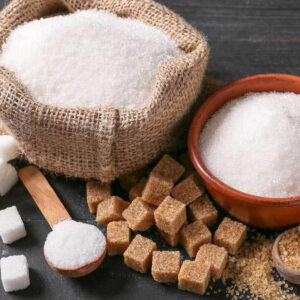Discover the Uses and Benefits of Beet Sugar Vs Cane Sugar in Your Daily Diet
Checking out the distinctive qualities of beet and cane sugar reveals more than simply their sweetening capacities; it highlights their distinct effect on health and wellness and cooking arts. Beet sugar, known for its refined flavor, is commonly favored in fragile treats, whereas cane sugar, with its tip of molasses, adds splendor to robust meals. Each type holds its very own nutritional profile and glycemic effects, welcoming a deeper understanding of their duties in a well balanced diet regimen and sustainable usage practices.
Beginning and Manufacturing Processes of Beet and Cane Sugar

The distinctive climates and dirt types needed for expanding sugar beetroots and sugarcane contribute to distinctions in their cultivation methods and geographical distribution, affecting the economics and sustainability of their manufacturing. beet sugar vs cane sugar.
Nutritional Comparison In Between Beet Sugar and Cane Sugar
In spite of originating from various plants, beet sugar and cane sugar are nutritionally extremely similar, both largely including sucrose. Each offers about 4 calories per gram, converting to approximately 16 calories per teaspoon. Structurally, both sugars are made up of roughly 99.95% sucrose, with minimal quantities of various other compounds like moisture and trace element, which do not considerably alter their nutritional accounts.

Ultimately, when picking in between beet sugar and cane sugar based upon nutritional content alone, both deal similar advantages and disadvantages as they are essentially forms of the same particle-- sucrose, supplying quick power without other nutrients.
Influence on Health And Wellness: Glycemic Index and Caloric Material
Checking out additionally into the impacts of beet sugar and cane sugar on health, it is important to consider their glycemic index and caloric content. The glycemic index (GI) of both beet and cane sugar is around 65, classifying them as high-GI foods, which can create fast spikes in blood sugar levels.
Each sort of sugar includes about 4 calories per gram, making their caloric web content matching. For those keeping track of caloric consumption, specifically when managing weight or metabolic health problems, comprehending this equivalence is important (beet sugar vs cane sugar). Excessive consumption of any high-calorie, high-GI food can contribute to wellness issues such as obesity, heart disease, and insulin resistance.
Environmental and Economic Factors To Consider of Sugar Production
Beyond wellness impacts, the production of beet and cane sugar also elevates look at here considerable environmental and economic concerns. Sugar beet cultivation tends to call for cooler climates and has a reduced geographical footprint compared to sugar cane, which thrives in tropical areas. However, both plants are intensive in regards to water use and land profession, potentially leading to deforestation and water scarcity. Economically, the global sugar market is very unstable, Check Out Your URL affected by changes in global trade plans and aids. Several countries incentivize sugar production via financial backing, skewing market prices and influencing small farmers adversely.
In addition, making use of pesticides and fertilizers in both beet and cane sugar cultivation can result in dirt degradation and contamination, additional impacting biodiversity and regional water bodies (beet sugar vs cane sugar). The selection between cultivating sugar beet or cane commonly depends upon local ecological problems and economic elements, making the sustainability of sugar production a complicated problem
Culinary Applications and Taste Distinctions
While the ecological and economic facets of sugar production are indeed considerable, the choice in between beet and cane sugar likewise influences cooking applications and flavor accounts. Beet sugar, stemmed from the sugar beet plant, is understood for its extremely neutral preference. This makes it a functional active ingredient in baking, where it does not change the flavor of various other components. It liquifies rapidly and is ideal for use in cakes, cookies, and pastries.
Cane sugar, extracted from sugarcane, frequently preserves molasses traces, which impart an unique splendor and depth. This slight molasses flavor improves the intricacy of baked items, sauces, and marinades. It is especially preferred in items where a caramel touch is wanted, such as in brownies or gingerbread. The slight variation in wetness content in between beet and cane sugar can impact the texture and consistency of dishes, making cane sugar a preferred choice for particular dishes that benefit from its unique buildings.

Final Thought
Finally, both beet and cane sugar have distinct origins and production processes, supplying similar dietary accounts with minor distinctions in sodium material and flavor. While their impact on wellness, especially concerning glycemic index and calories, is similar, the option between them typically comes down to environmental, financial elements, and certain look at this site cooking requirements. Recognizing these facets can lead customers in making notified choices that straighten with their health goals and flavor preferences.